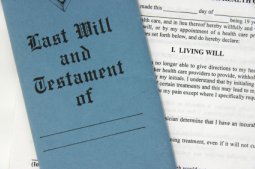Estate Planning For Dummies
3 Steps to being Prepared

Is it really estate planning for dummies?
Well maybe the word is a bit harsh - I tend to lean towards estate planning for procrastinators.
Not being prepared can lead to many dumb mistakes. Causing stress for your loved ones.
Many people avoid preparing an estate plan because they don’t like to face the issues surrounding their demise.
It is also commonly thought that estate planning is complicated and expensive.
As a result, families and businesses suffer unnecessary financial hardships at the time that an estate needs to be transferred.
The truth is, that if you want to call it estate planning for dummies it is not a difficult process and even the least financially savvy among us can and should put the basic elements of an estate plan together.
What follows is an overview of estate planning for dummies:
The challenge for most people is just beginning the process, which is nothing more than determining what it is exactly that you want to have happen with your estate.
In three straightforward steps you can have the key elements of your estate plan in place:

1. Take Inventory
You need to know what your estate contains. Prepare an inventory of your assets and liabilities.
The difference between the two is your net worth, which will give you a better idea of how much exposure your estate might have to pay in fees and taxes.
2. Establish goals and objectives
The best way to do this is to ask yourself some key questions:
- Who should benefit from your estate?
- How should they benefit? Equally? Immediately?
- How will illiquid assets be distributed? Should real estate or businesses be sold?
3. Communicate your wishes
The most essential element of an estate plan is your will, which communicates precisely your instructions for the disposition of your property.
Without a will, your estate will become intestate and the government will become the liquidator of your estate which is not something anyone would want.
Your will also names an liquidator who will take on the responsibility to ensure that your instructions are followed.
Wills can be fairly easy to create and can be done so relatively inexpensively either through an attorney or notary or on your own as long as it is properly witnessed.
Once you have taken the step to create a will, it doesn’t require too much more time or effort to have a living will or a madate of incapacity
These documents can be very important to ensure that your objectives are met.
They are seperate from your will and they contain your instructions for managing your affairs should you become incapacitated.
It is important to share your estate plan with key family members so they understand what you want to accomplish.
While much of this process can be accomplished without the services of an attorney or notary it is always advisable that you seek the counsel of one who is qualified in estate law.
Unless you have a very large estate, the time and costs to put the essential pieces of your estate plan together are relatively small.
Estate Planning For Dummies?
Case Study: A Financial Snapshot
Probably the incident which has stuck with me for these many years when it relates to estate planning is the case of Maggie (not her real name). She had been a client for more than 20 years.
Her long-term vision was to put aside money her to build a home in the Caribbean where she was born and as she used to say "Put my toes in the clear salt water" when I am done working.
So for years while working in the health care field she prepared and planned for her retirement day.
Besides having the home being built in the Caribbean, she continued to build up a retirement fund through RRSPs and long-term non-registered savings.
Having being widowed early in her working life Maggie understood the importance of taking care of her young family as the main income provider.
To make sure that all of her wishes would be taken care of and properly co-ordinated, she made sure that she had a will and a mandate of incapacity.
Well in the year before Maggie was to retire after 35 years she was diagnosed with Cancer.
It was also around the time when her dream home where she could put her toes in the clear salt water was nearing completion.
The disease took hold of her and for six months while she battled she got to sleep in that dream home.
In fact, that was the place where she passed away.
If anything this incident with Maggie made me realize that life does have its twists and turns. Nothing should ever be taken for granted.
And even though we plan for the future based on our individual goals, we still must make sure that part of our plans include that whoever we leave behind will be taken care of.
Was this really estate planning for Dummies, I would rather call it estate planning for the well-prepared.
More Information On Estate Planning
Estate Planning Checklist - 5 Essentials Elements for Planning Your Estate
What You Need to Know About Estate Planning in Canada
Return from Estate Planning for Dummies back to Successful Wealth Approach